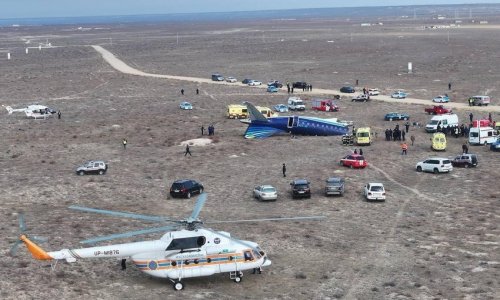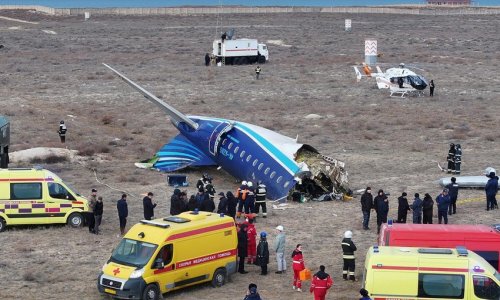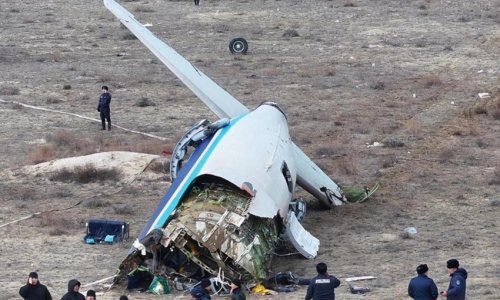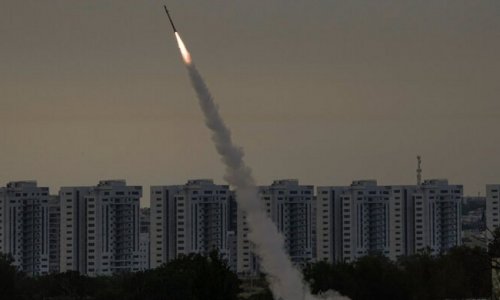US National Security Adviser Susan Rice, who announced the development, said she welcomed the new agreement.It has not yet been confirmed by Turkey, which has so far refused to send troops into Syria or Iraq.Turkish MPs recently passed a motion allowing foreign forces to use its bases for activities in Syria and Iraq.The US-led coalition is carrying out air strikes against Islamic State militants, who have seized large parts of Iraq and Syria. Many have targeted IS around the key Syria-Turkey border town of Kobane.The UK-based Syrian Observatory for Human Rights monitoring group said an IS suicide bomber had detonated a truck with explosives to the north of the besieged Syrian Kurdish town on Monday.IS militants, who control some areas of the town, are continuing to meet resistance from Kurdish forces there.US military baseSpeaking to US broadcaster NBC on Sunday, Ms Rice said Turkey had agreed to let the US use Turkish bases and territory "to train moderate Syrian opposition forces"."That's the new commitment, and one that we very much welcome," she added.The large US military base at Incirlik in southern Turkey could be used, says the BBC's Mark Lowen in Istanbul.A US military team is travelling to Ankara this week to discuss the training programme and what kind of missions could be flown from Turkish bases.The training of Syria's moderate opposition is part of US President Barack Obama's anti-IS strategy announced last month.In recent days, IS fighters have advanced against the Syrian town of Kobane, which has a border crossing point with Turkey.But neither side has been able to gain significant ground, despite seven further coalition air strikes on IS positions to the east and south-west of the town overnight, according to local Kurdish sources.They said that fierce clashes continued on Monday near aid supplies warehouses at the south-west entrance to the town.The militants were pushed back as they tried to advance towards a border crossing.Turkey has ranged its military forces on the border but has so far ruled out any ground operation on its own and has refused to allow Kurds in Turkey to cross the border to fight.Turkey has been reluctant to get involved militarily, partly because it is concerned about arming the Kurdish forces fighting IS militants. Turkey fought a long civil war with its Kurdish minority.Since the IS offensive against Kobane began in mid-September, some 500 people have been killed and up to 200,000 have fled across the border into Turkey.IS says it aims to establish a "caliphate", a state ruled by a single political and religious leader according to Islamic law, or Sharia.It has become known for brutal tactics, including mass killings, abductions of members of religious and ethnic minorities, and the beheadings of soldiers and journalists.(BBC)Bakudaily.Az
Turkey 'allows Syria rebel training'
World
18:30 | 13.10.2014
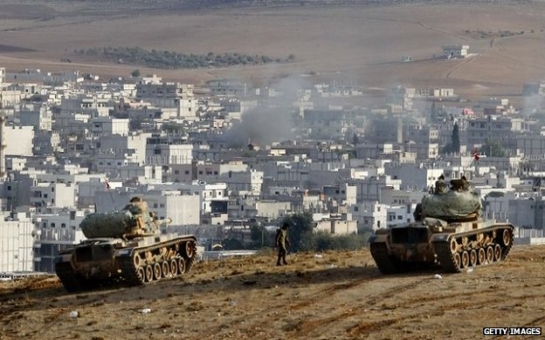
Turkey 'allows Syria rebel training'
Turkey has agreed to allow moderate Syrian rebels to be trained on its soil, the US says, in its bid to combat Islamic State in Syria and Iraq.
Follow us !

